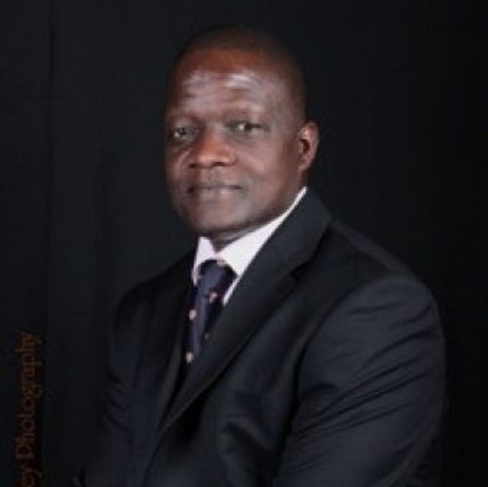Strengthening the inaugural MMed Radiology Residency Programme in Malawi with Else Kröner-Fresenius-Stiftung
- Worldwide Radiology

- Sep 29, 2025
- 6 min read
Updated: Sep 30, 2025
Worldwide Radiology is excited to announce a new partnership with Else Kröner-Fresenius-Stiftung (EKFS), which will further strengthen radiology training and workforce capacity in Malawi. This project builds on years of collaboration with Kamuzu University of Health Sciences (KUHeS) and responds to Malawi’s urgent need for radiology expertise.
The Else Kröner-Fresenius-Stiftung has a long history of supporting capacity development in health in Malawi and we are delighted that they are now including Radiology in their portfolio.

Zoom call with the Malawi MMed team celebrating the grant success, which will allow them to complete their final year of training in South Africa.
The Malawi MMed team were full of excitement when they heard the news of the new grant, which means they can complete their final year of training in South Africa. Professor Nyengo Mkandawire, former Dean of KUHeS who worked with Dr Karen Chetcuti to get the MMed programme off the ground and secured the initial NORHED funding, shared his delight:
“What most exciting news!! Congratulations you two for submitting the application and being granted the funds. Most commendable indeed. This is a huge boost to the MMed programme initiated and funded by the NORHED 2 Grant. This German support will help with visiting faculty and international exposure of our trainees to practices and teaching and learning environments currently not available in the country. We want a graduate who is both globally competent and locally relevant. This grant will go a long way in ensuring this.”
Addressing a critical gap
Malawi is a landlocked country in Sub-Saharan Africa and is classified by the United Nations as one of 45 economically least developed countries. With a rapidly growing population of more than 20 million people, half of whom are under the age of 18, the demand for health services is rising every year.
Against this backdrop, the availability of Radiology Specialists is extremely limited. At present, only four Radiologists serve the entire population. This equates to just one Radiologist per 5 million people in Malawi. By comparison, the ratio is one Radiologist per 16,000 people in the United Kingdom and one per 10,000 in the United States. The inequity in access to radiology services for both children and adults is stark.
Historically, the Ministry of Health had to address this by funding Malawian doctors to train abroad, as there was no national Radiology training programme. Unfortunately, this strategy did not result in sustained capacity development, due to unintended “brain drain” as high-income countries recruited most of these internationally accredited Radiologists. As a result, the disparity in the Radiologist-to-population ratio remained severe and is deeply felt at the patient care level. The poor and marginalised are most affected, as they cannot afford to access the few private sector radiology services that are available.
This urgent need for nationally trained Radiologists was the driving force behind the Kamuzu University of Health Sciences (KUHeS) establishing the first MMed Radiology residency programme.
Building the foundations
The launch of this new residency programme was made possible through the Norwegian Programme for Capacity Development in Higher Education and Research for Development (NORHED) II. This grant enabled KUHeS to appoint Dr Karen Chetcuti as its first Radiologist faculty member, tasked by the Dean at the time, Professor Nyengo Mkandawire, with co-creating and delivering the new MMed programme.
Between 2020 and 2021, Dr Chetcuti developed the curriculum with the aim of high-quality, patient-focused Medical Imaging services in Malawi. A two-day Curriculum Development meeting in Mangochi brought together key stakeholders from the Ministry of Health, Medical Council of Malawi, National Council for Higher Education, KUHeS faculty, and Addis Ababa University. This ensured alignment with national education and clinical governance standards.
In parallel, teaching modules and job plans for training sites at Blantyre and Lilongwe Teaching Hospitals were created, while a global network of Radiologists was mobilised through partners such as Worldwide Radiology, the University of North Carolina and Rad-Aid to deliver regular online case reviews, journal clubs and teaching sessions. Infrastructure upgrades, supported by NORHED II, Worldwide Radiology donors and the Malawi-Liverpool-Wellcome Trust (MLW), equipped training sites with imaging viewing workstations, secure IT and image sharing networks, teleconferencing facilities and new radiology reporting rooms.

The programme launched in September 2022 with four residents. Since then, three more have joined, with six trainees remaining in active training across both sites. Worldwide Radiology has been closely involved from the start, organising on-site international volunteer visits, supporting remote teaching on subspecialty topics which are outside the areas of expertise of the radiologists in Blantyre and Lilongwe, and piloting innovations such as remote expert mentoring of Malawian residents during multidisciplinary cancer meetings.
As a result of the programme, radiology education is also reaching other specialties. Weekly paediatric, internal medicine and emergency medicine meetings now include resident-led case discussions, while regular point of care ultrasound courses, supported by the residents, provide hands-on training for non-Radiology clinicians. These activities are strengthening collaboration between departments and embedding radiology clinical service and education more widely across Malawi’s health system.
What this project will deliver
The overall goal is to continue to increase the Radiology workforce in Malawi, leading to stronger patient services, more education and research capacity, and a new generation of Radiology leaders and policy makers.
The project will achieve this through three main activities:
International visiting faculty: We will continue to bring experienced international Radiologists to Malawi to provide in-person teaching and mentoring. Residents will gain knowledge and hands-on experience, visiting experts will deliver teaching and assessments, trainees will receive feedback, and visiting faculty will gain exposure to Malawian Radiology practice, offering valuable learning for their own home practice.
Remote expert teaching: We will expand remote teaching sessions delivered by our global volunteer network, with support from a project manager to ensure content is aligned with the KUHeS curriculum. Rigorous monitoring and evaluation will be carried out to ensure consistent, high-quality teaching. Structured assessment and feedback will be built into the programme and we will ensure long-term sustainability of remote education until Malawi has a larger Radiology teaching workforce.
International placements: The project will make it possible for the current residents to complete a 10-month placement in an academic African Radiology department outside Malawi. They will be able to expand their learning and experience, and forge strong ties with colleagues at these host institutions. These connections will support future education and research collaborations.
By 2028, the project will have supported the graduation of the first cohort of Radiology Specialists trained in Malawi and will have established an international training network that can continue to collaborate with KUHeS into the future.
Who will benefit from this project
This project will bring benefits across multiple levels of Malawi’s health system. The direct beneficiaries are the Radiology residents, who will receive high-quality training by a team of local faculty and international experts. Over the grant period, new residents will join the programme, ensuring that a steady pipeline of Radiologists is built for the future, as graduates start to contribute to the teaching.
Benefits extend well beyond the residency itself. Non-Radiology undergraduate and postgraduate doctors, across all specialties, will benefit from greater opportunities for Radiology education. This will equip them with stronger diagnostic skills wherever they are posted, including hospitals and clinics without Radiologist presence.
Allied healthcare professionals such as radiographers will also gain from working alongside more Malawian Radiologists, enhancing the quality and safety of imaging services together. In the long term, this will enable the development of new roles, such as reporting radiographers, strengthening the workforce further.
Patients are the ultimate beneficiaries. For example, with 1300 - 1500 hospital patients at the Blantyre Teaching Hospital site at any one time and an estimated 3,000 outpatients attending clinic each day, the reach of this project is substantial. As increasing numbers of graduated Residents move to other hospitals, their patients too will start to benefit. The Radiologists will improve the volume and accuracy of diagnoses, offer more specialist procedures and significantly strengthen treatment and care for both adults and children.
Ensuring sustainability of this project
EKFS support will play a vital role in ensuring sustainability. Six Malawian Radiologists will have graduated by 2028. They, and those who follow them, will become educators themselves, creating a “training the trainer” model securing the residency programme’s future. Embedding the newly graduated Radiologists a network of international colleagues who understand the Malawian Radiology context will expand their professional circle, reducing the risk of “brain drain” due to lack of support, and opening up opportunities for developing new radiology services together, as well as ongoing education and research collaborations.
This project therefore contributes to the long-term upward trajectory of Radiology in Malawi. By aligning with other EKFS-supported projects, such as paediatric ultrasound training and paediatric specialist training, the project complements wider efforts to strengthen Malawi’s health system. It will also add to the foundation for the planned Else Kröner Center in Global Child Health, led by the Malawian Paediatrics and Child Health Association (PACHA).
Looking ahead
“High-quality teaching, guided by Malawian faculty and focussed on Malawian health needs, is fundamental to the success of this MMed training programme", Dr Chetcuti shared.
By continuously developing the Radiology workforce, by strengthening long-term international partnerships, and by expanding radiology education across the health system, this project lays the groundwork for lasting change, offering all patients in Malawi the high quality, safe and effective care that they deserve.
.png)











